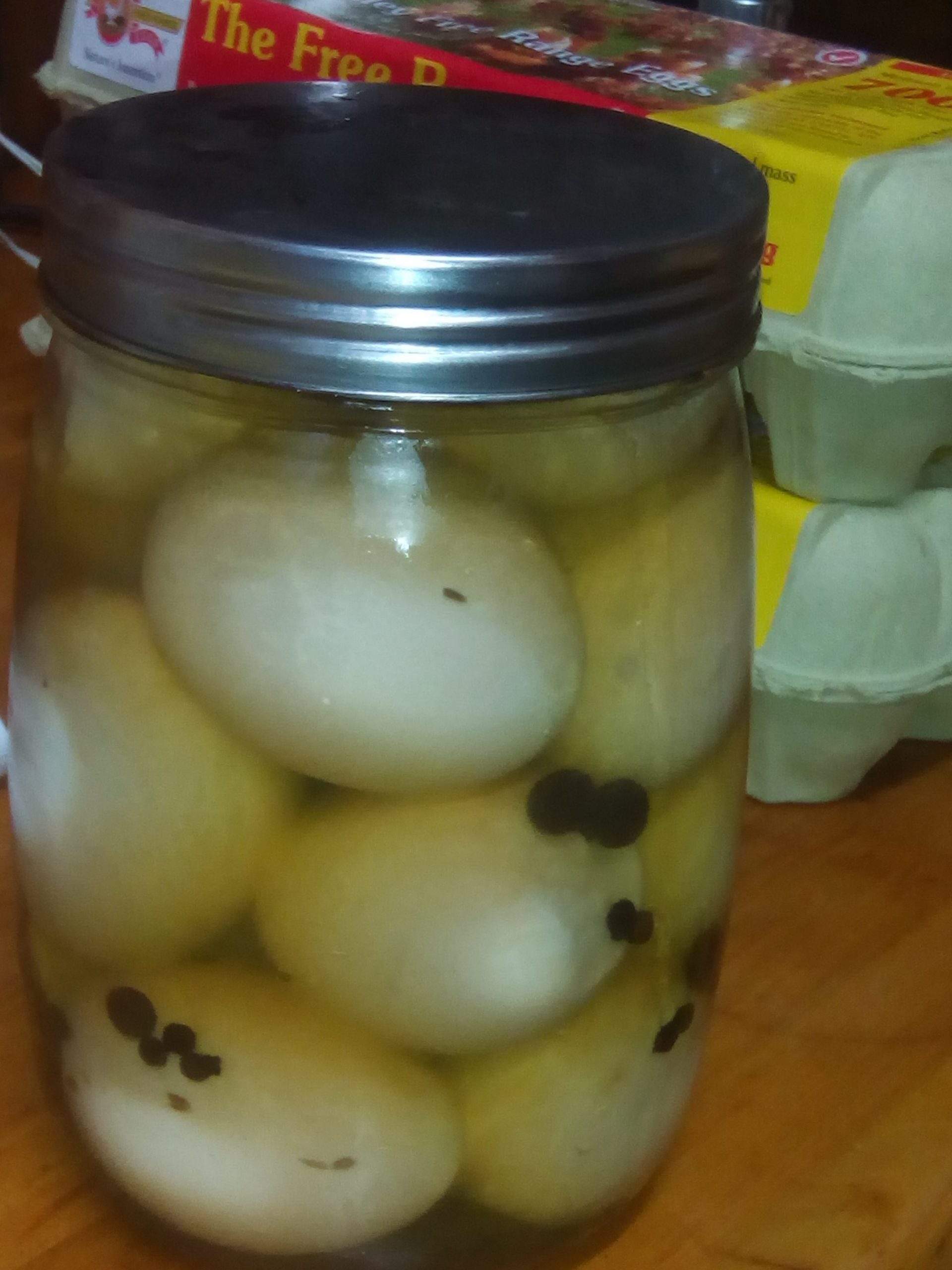
Pickling is a very important part of medieval life. Preserving food to last the winter when one doesn’t have access to greenhouses or to aeroplanes capable of tranporting goods from the other side of the world.
Pickles need a dark consistent temperature during the pickling process. Pickling in medieval times would have been done in stoneware or in ceramics, with oil, or waxed linen covers to seal the tops.
Kept in a dark cool cupboard or cellar, it would have been safe until ready to eat.
Here’s a good redaction of one of the earliest written down picking sources – Compost from Forme of Cury
http://www.godecookery.com/goderec/grec5.htm
I’d post more links about the history and written sources, but someone has already done it, so I’ll link to them instead.
https://turnspitandtable.wordpress.com/2015/09/16/pass-the-pickled-eggs/
Medieval chickens don’t lay every day like modern chickens and they don’t lay in winter. So keeping eggs becomes important as a good source of protein during winter and as a way to save any excess eggs.
So here’s a simple and easy way to pickle eggs.
Things you will need
12 eggs
Steralised sealing jar (about 1 L)
600ml of apple cider vinegar
Pickling spices (You can buy a combination of spices called, surprising, “pickling spices” in most supermarkets. It’s dill, whole mustard, peppercorn….)
Firstly, hard boil those eggs. You want a long hard boil, about an hour to get them nice and hard. Make sure there’s plenty of water in the pot and the eggs are covered or they will explode.
Let the eggs cool and then peel them. An easy way to do this is to gently roll the eggs between your hand and the bench until it peels.
If there are any eggs where the yellow yolk breaks the surface of the white or is very close to the surface, put those aside to be eaten. If the yellow is too close to the surface, it won’t work well for the pickling.
Put the rest of the eggs into the jar.
Take a small saucepan and put the vinegar and the pickling spices in it. Let these boil together for about half an hour. Then pour the mix over the eggs and seal the jar.
If there is any left over liquid, you can use this as the base for a new pickling solution.
The eggs want about a month for pickling and are then good to eat within 6 months.